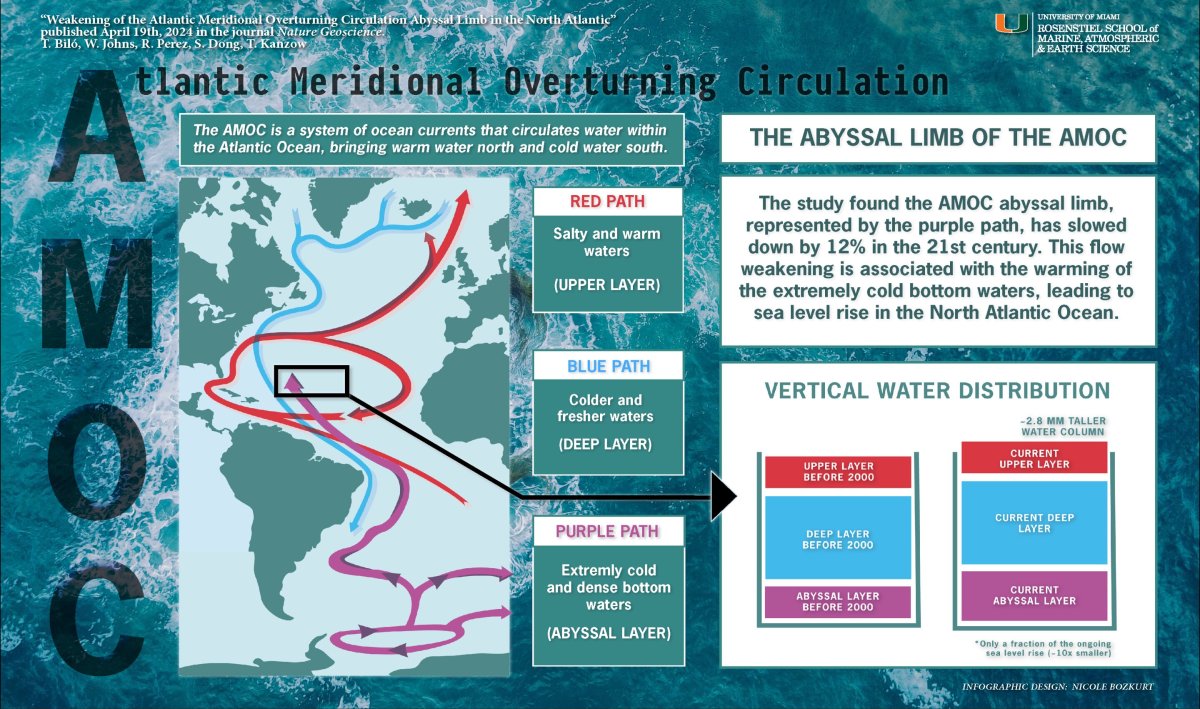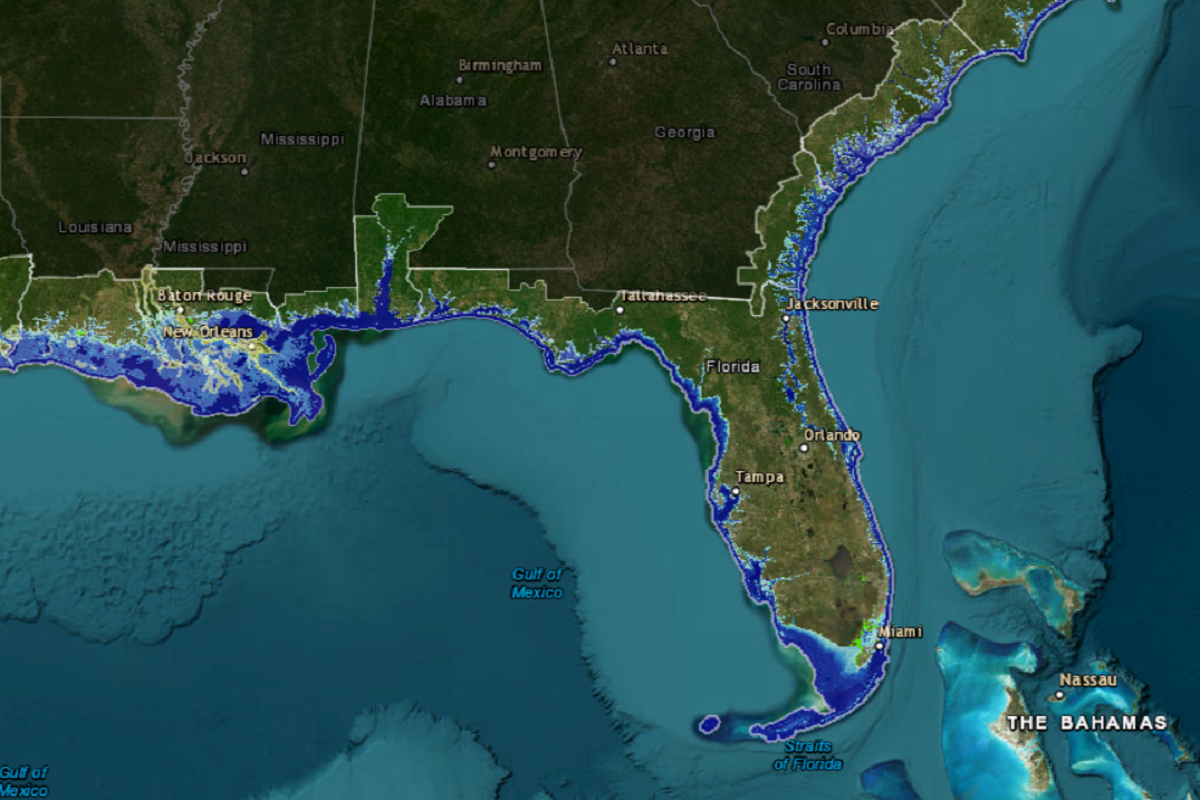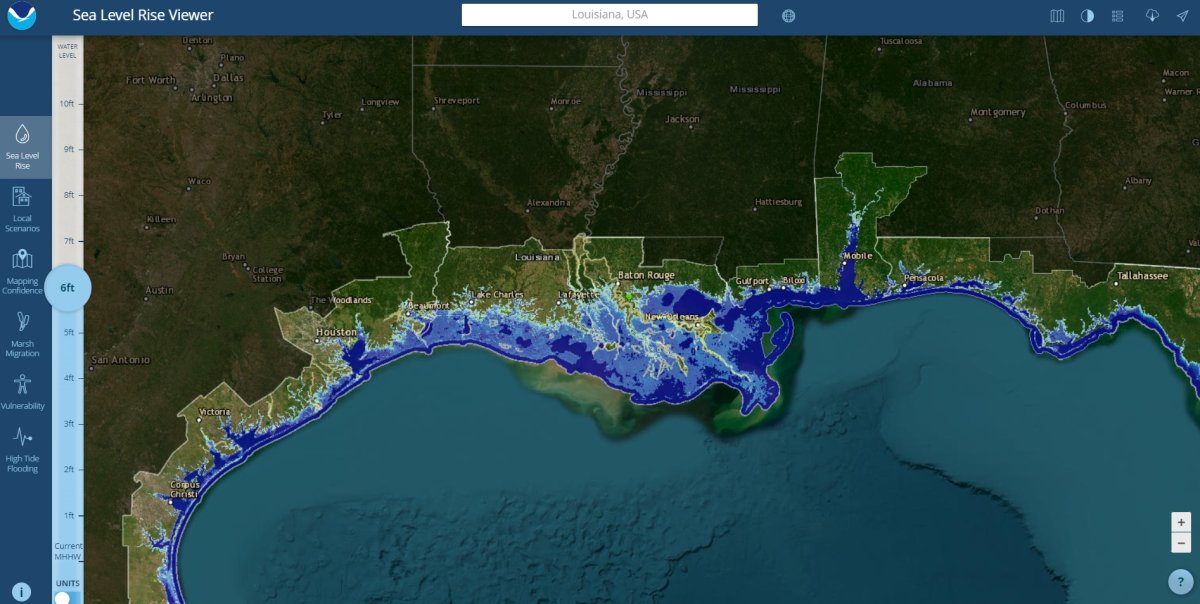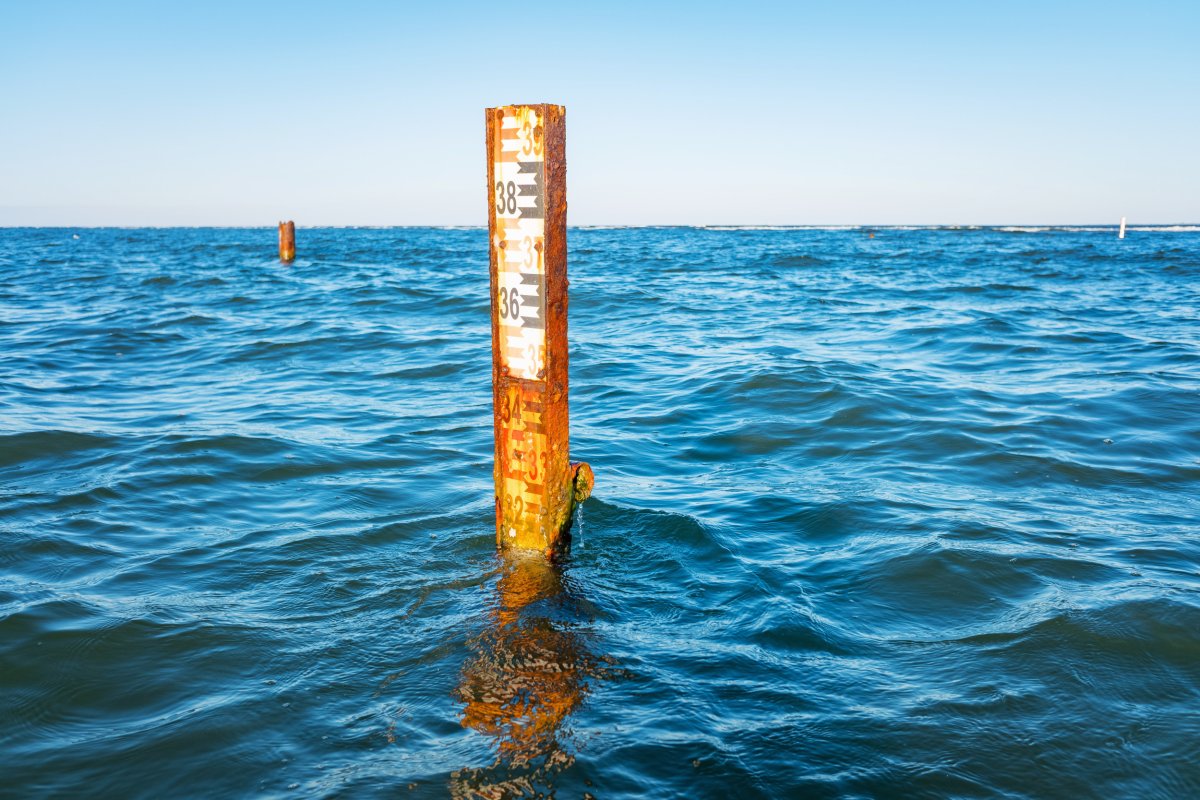The warming of Antarctica's deep waters is hastening sea-level rise in the North Atlantic, a study has found.
Researchers at the University of Miami and the National Oceanic and Atmospheric Administration's Atlantic Oceanographic and Meteorological Laboratory analyzed deep-sea data spanning 20 years. It came from 2.5-mile depths in waters that flow from the Southern Ocean to the North.
They discovered that a key ocean current system called the Atlantic Meridional Overturning Circulation (AMOC) has weakened by around 12 percent. This is warming deeper waters in the South, which in turn is contributing to sea-level rise in the North Atlantic.
The AMOC circulates water in the Atlantic, flowing warm water to the North and cold water to the South. It is vital for keeping the world's oceans balanced in temperature and bringing warmth to colder areas of the globe. It also sustains ocean life. However, it is at increased risk of collapse due to climate change, and this latest study only adds to this evidence.

Although the Antarctic and North Atlantic are far away from each other, the findings reinforce that even remote areas are not safe from human impact, the study's lead author Tiago Biló, an assistant scientist at the Rosenstiel School's NOAA Cooperative Institute for Marine and Atmospheric Studies, said in a statement.
"Our observational analysis matches what the numerical models have predicted—human activity could potentially impose circulation changes on the entire ocean," Biló said. "This analysis was only possible because of the decades of collective planning and efforts by multiple oceanographic institutions worldwide."
Anything that contributes to rising sea levels is of great concern, as it could eventually see parts of the United States coast submerged.
The Intergovernmental Panel on Climate Change (IPCC) estimated there is likely to be up to 1.1 meters (3.6 feet) of sea-level rise by the year 2100 if global greenhouse gas emissions are not mitigated, but said a sea-level increase "of 2 or more meters (almost 6.6 feet) cannot be ruled out."
Florida and Louisiana are two states at extremely high risk from rising sea levels. Maps generated by NOAA show what Florida could look like if sea levels were to rise by just 3 feet, and how Louisiana could be affected if they rose by 6 feet.


The patch of ocean studied, called the Abysmal Limb, is part of the AMOC. The Abysmal Limb is made up of bottom water from the Antarctic, which forms from cooling southern seawater during the winter.
When surrounding sea ice forms, it releases more salt into the water which then sinks to the floor, creating cool water that flows north.

But this flow of cool water is slowing down at a concerning rate. This means there is a lack of cooler water being spread, meaning that the deep ocean waters are warming.
"The areas affected by this warming spans thousands of miles in the North-South and East-West directions between 4,000- and 6,000-meters of depth," William Johns, a co-author and professor of ocean sciences at the Rosenstiel School of the University of Miami, said in a statement.
"As a result, there is a significant increase in the abyssal ocean heat content, contributing to local sea-level rise due to the thermal expansion of the water."
The study is published in the April 19 issue of the journal Nature Geoscience.
Update 04/22/2014, 09:45 a.m. ET: This article was updated to include detail about how Florida and Louisiana could be affected by sea-level rise.
Do you have a tip on a science story that Newsweek should be covering? Do you have a question about sea level rise? Let us know via science@newsweek.com.
Uncommon Knowledge
Newsweek is committed to challenging conventional wisdom and finding connections in the search for common ground.
Newsweek is committed to challenging conventional wisdom and finding connections in the search for common ground.
About the writer
Robyn White is a Newsweek Nature Reporter based in London, UK. Her focus is reporting on wildlife, science and the ... Read more
To read how Newsweek uses AI as a newsroom tool, Click here.








